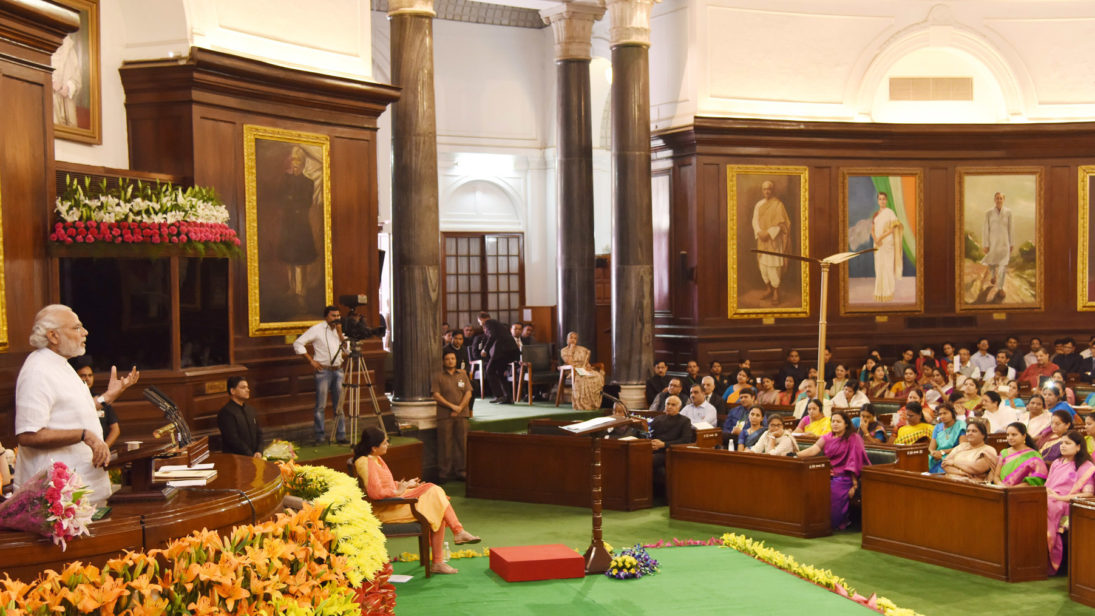
Last week, Happymon Jacob at JNU published an article on New Delhi’s sorry record on track II diplomacy, echoing in several ways some of the views that I have held but expressed only privately. It is always comforting for a grad student to know that some of her own thoughts resonate with those of established academics.
Over the past three or so years of my interactions in personal capacity with former and serving Indian diplomats, civil servants and the likes, I have begun to believe that the power structure in New Delhi is too opaque to be of any use peeping in. The key issue is that of trust. That the establishment would find those outside its close ambit unreliable, when it comes to national defense and strategic issues, is understandable. However, that it is barely able to even prudently engage with them is indicative of a regressive bureaucratic culture and Newton’s first law of motion, i.e. inertia.
Jacob makes a comparison with Pakistan and underscores that Islamabad is more positively predisposed towards track II diplomacy than New Delhi. I concur in this as well, although I do not agree with his argument that Pakistan suffers less from a postcolonial hangover. It is hard to imagine that a country that came into existence the same time as ours, through similar nature of bloodshed and suffering, and liberated from the same European colonial power, would have any less of a postcolonial angst after independence. It probably exhibits different symptoms of the same hangover, which needs more investigation.
These varying symptoms manifest themselves in the differing political systems, contrary foreign policy positions in the Cold War and after, the nature of civil-military relations and probably even the timing of their nuclear programs. Investigating each of these would be a fascinating research project for those interested. I myself would adhere to the three key reasons, which I think might help make sense of New Delhi’s pervasive track II paranoia.
1. Democracies don’t fight each other is as the old contested adage goes. Young democracies are however renowned for violence. While violence in new democracies is a sign of insecurity with respect to power and the newly acquired sovereignty, no or low violence does not automatically indicate low insecurity. To my understanding, it is intense insecurity that contributes to the track II paranoia of New Delhi. Being a democracy it is unable to control what its citizens do nationally and internationally. Its inability to streamline an “Indian opinion” on the global platform through its citizens, who may have a mind of their own, compels it to remain wary of independent academics, students and others carrying Indian passports. This is less so in the case of our neighbors, where democratic political culture is low and politico-social violence per square kilometer is probably several times higher.
2. There is a certain path-dependency when it comes to state behavior, both internally and externally. The biggest baggage for a postcolony is the colonial state apparatus that it inherits from the colonizer. This apparatus may be a fairly functional or a rather feeble one. In both cases, responsive governance lies in the ability of the postcolony to gradually replace subject-state relations with citizen-state relations. This process, which is albeit a slow one, is far from complete in South Asia. Hence, the opaqueness that characterized the colonial state, which had little interest in sharing its internal processes with the native society, has survived until this day. The individual or the group of individuals outside the state is held with suspicion and even outright hostility. Once again, the different political cultures in the two countries lead to different expressions of this hostility. The Indian state regards its track II “diplomats” with alarm, while the Pakistani state more often prefers to handpick its own.
3. The opaqueness and the inertia contribute to the third reason, namely the low involvement of academics and university professors in public service in India, unlike in Pakistan. When freedom of thought and expression is limited for a long time in a society, it is hard to find “independent” individuals, who might differ with the official state position. This is a classic Orwellian syndrome. While academics in India specializing in strategic issues should make more effort in descending the ivory tower and take a break from theorizing, the Indian state should make more effort to warm up to new ideas and different perspectives. As the country has survived almost seven decades of democratic politics, however spotty, it is essential that this democratic culture trickle down into state-society relations in India. What is the point in having a thriving young population and a strong academic tradition both inside and outside the country, if the state can derive nothing positive out of it? New Delhi’s track II paranoia is only its own loss. By shutting its door to its “own outsiders” it is unable to tap its own resources.
Hopefully, in the near future a more symbiotic relationship may emerge between the state and the society in India. Until then, “the unmistakable negativity” as Jacob calls it, has to be lived with.
***
Image: Narendra Modi, Flickr